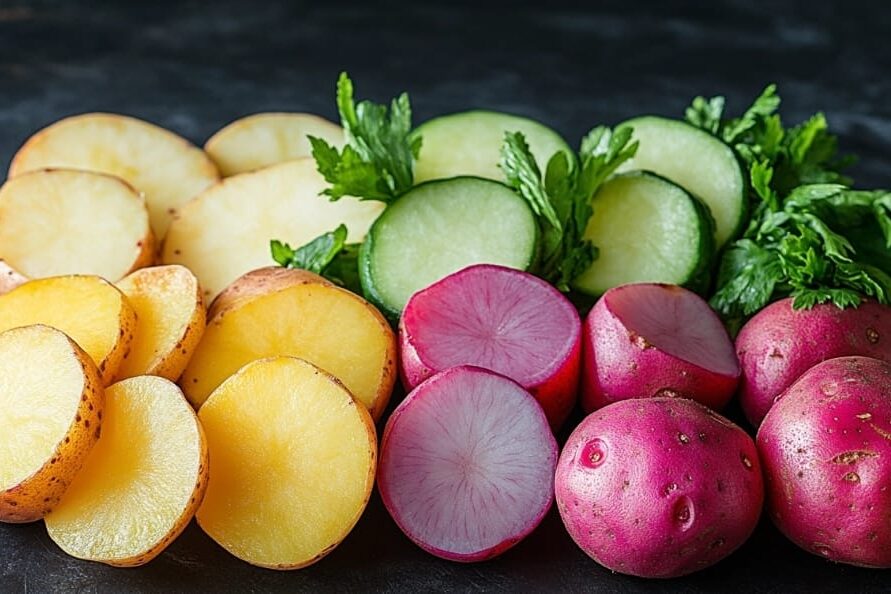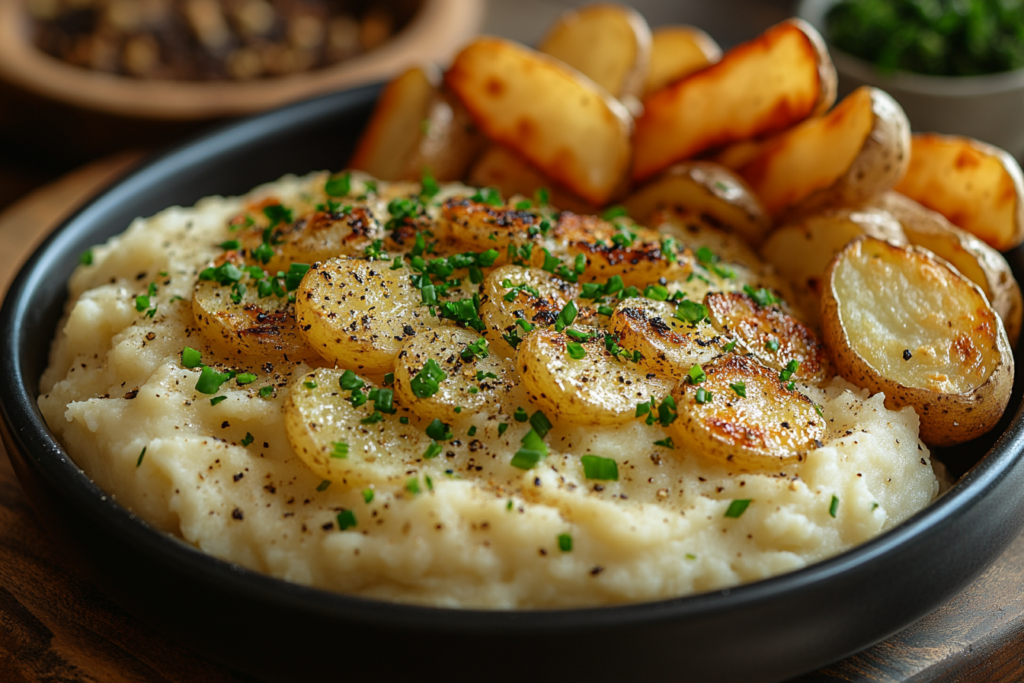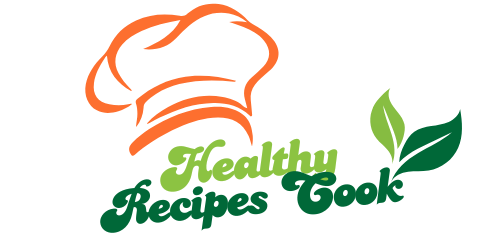Table of Contents
Calories in russet potato are a key consideration for anyone mindful of their diet. This popular food is not only versatile but also provides essential nutrients. In this article, we’ll dive into the calorie content of a russet potato, discuss how its size and cooking method impact its calories, and compare it to other types of potatoes. Whether you’re counting calories or looking for healthier food choices, understanding the nutritional value of a russet potato is essential..
What is a Russet Potato?
Characteristics of Russet Potatoes
Russet potatoes, also known as Idaho potatoes, are large, oval-shaped tubers with a rough, brown skin and a starchy, white interior. Their distinctive look and flavor have made them one of the most popular types of potatoes in the United States. Russet potatoes are often prized for their ability to create a fluffy, light texture when baked or mashed, making them ideal for comfort foods like baked potatoes and mashed potatoes.
These potatoes typically have a high starch content, which is why they are favored for frying, baking, and mashing. When you bake a russet potato, the inside becomes light and airy, making it perfect for loading with toppings like sour cream, cheese, or bacon.
Russets are often sold in various sizes, from small to large, with medium-sized potatoes weighing around 150 grams. This size is considered a standard serving for calorie-counting purposes. As you will see, the calorie count changes depending on the size of the potato, which is important to consider when planning meals or portioning food.
Nutritional Value of Russet Potatoes
Russet potatoes are a good source of essential nutrients like potassium, vitamin C, and dietary fiber. Here’s a general breakdown of the nutrition you can expect from a medium russet potato (about 150 grams, or roughly one medium-sized potato):
- Calories: A medium russet potato contains about 110 calories.
- Carbohydrates: Approximately 26 grams of carbs, including 2 grams of dietary fiber.
- Protein: Around 3 grams of protein.
- Fat: Less than 1 gram of fat, making it a low-fat food option.
- Vitamins and Minerals: A rich source of vitamin C (around 20% of your daily recommended intake) and potassium (about 20% of your daily recommended intake). Potassium is particularly beneficial for maintaining healthy blood pressure and supporting heart function.
While you may think that potatoes are unhealthy due to their starchy nature, they offer numerous health benefits. They are a good source of fiber, which is essential for digestive health. Additionally, potatoes contain a significant amount of vitamin C, which helps boost the immune system.
If you’re looking for more ways to boost your diet with healthy ingredients, check out our article on the health benefits of oats and oatmeal, or learn how oatmeal can help with weight loss in our post about oatmeal for weight loss.
Calories in 1 Medium-Sized Russet Potato
Caloric Content of a Medium Russet Potato (150 grams)
A medium-sized russet potato, weighing about 150 grams, contains approximately 110 calories. This makes it a relatively low-calorie food choice, especially when compared to many other starchy foods. The 110 calories come primarily from carbohydrates, which make up about 26 grams per potato.
These calorie counts apply to a plain, unseasoned potato—without added butter, oil, or toppings. If the potato is prepared with ingredients like butter, cheese, or sour cream, the calorie count will increase, as these are common in many potato recipes.
Caloric Content Based on Potato Weight (Small, Medium, Large)
The calorie content of a russet potato can vary significantly depending on its size. Here’s a breakdown of how calories differ based on the potato’s weight:
- Small Russet Potato (around 100 grams): Approximately 77 calories.
- Medium Russet Potato (around 150 grams): Approximately 110 calories.
- Large Russet Potato (around 200 grams): Approximately 150 calories.
As you can see, larger potatoes contain more calories, as they have more starch and carbohydrates. If you’re looking to control your calorie intake, opting for a small or medium-sized russet potato may be a better choice.
Calories When Cooked (Baked, Mashed, Fried)
The method of preparation significantly influences the calorie count of a russet potato. Here’s a breakdown of the calories based on common cooking methods:
- Baked Russet Potato: When baked, the calories in a russet potato remain similar to its raw form. A medium-sized baked russet potato still contains around 110 calories. However, the total calorie count can increase if toppings like butter or cheese are added.
- Mashed Russet Potato: The calorie count in mashed potatoes depends largely on what is added during the mashing process. If mashed with butter and cream, a medium-sized mashed russet potato can contain around 200-250 calories. For a lower-calorie version, you can mash the potatoes with milk or vegetable broth instead of butter and cream.
- Fried Russet Potato (French Fries): When deep-fried, russet potatoes absorb oil, which significantly increases their calorie content. A medium-sized serving of fries can contain around 300-400 calories, depending on the amount of oil used and the portion size.
The cooking method can affect the calorie count of russet potatoes. Baking keeps the calorie count low, while adding fats like oil and butter increases it.
Comparison with Other Types of Potatoes
Next, we’ll compare the calorie content of russet potatoes with other popular varieties, like red potatoes, Yukon Gold, and sweet potatoes. This comparison will give a clearer idea of how russet potatoes measure up in terms of calories.
Sure! I’d be happy to continue. Let’s dive into the next part where we’ll compare russet potatoes with other types and explore more factors that affect their calorie content.
Feel free to share the next section or any other details you’d like me to focus on!
Comparison with Other Types of Potatoes
Calories in Russet vs. Red, Yukon Gold, and Sweet Potatoes

When considering the nutritional and caloric content of potatoes, it’s useful to compare the different types. Russet potatoes are often the go-to for baked potatoes and fries. However, other varieties like red potatoes, Yukon Gold potatoes, and sweet potatoes have their own unique nutritional profiles. Here’s how the calories in russet potatoes compare to other popular varieties:
- Russet Potatoes: As mentioned earlier, a medium-sized russet potato (about 150 grams) contains around 110 calories.
- Red Potatoes: A medium-sized red potato (about 150 grams) contains approximately 130 calories. Red potatoes are smaller with a waxy texture, making them ideal for boiling or roasting. They are slightly higher in calories due to their higher sugar content.
- Yukon Gold Potatoes: A medium-sized Yukon Gold potato (about 150 grams) contains approximately 120 calories. This variety has a creamy texture and a slightly buttery taste, making it a popular choice for mashed potatoes. Like red potatoes, Yukon Golds are higher in calories compared to russets.
- Sweet Potatoes: A medium-sized sweet potato (about 150 grams) contains about 135 calories. Sweet potatoes are a different variety altogether and are rich in beta-carotene (vitamin A) and fiber. They also have more sugar, which contributes to the higher calorie count compared to russet potatoes.
Russet potatoes are slightly lower in calories than other common varieties, but the difference isn’t significant. If you’re aiming for a lower-calorie option, russets are a good choice, especially when cooked without added fats or oils.
Why Russet Potatoes Have More Calories Than Other Potatoes
Russet potatoes tend to have more calories than other varieties due to their higher starch content. Starch is a complex carbohydrate that provides energy and contributes to the potato’s calorie count. The fluffy, starchy interior of russets is perfect for baking or mashing, giving them their signature texture.
In contrast, waxy potatoes like red or Yukon Gold have less starch and more moisture. This results in a firmer, denser texture. This difference in starch is one reason russet potatoes are slightly higher in calories than waxy types.
Sweet potatoes, often seen as a “healthier” choice, actually contain more natural sugars than russets. This sugar content can explain their higher calorie count.
Factors That Affect Calorie Content
The calorie content of russet potatoes can vary based on several factors, such as the cooking method, added toppings, and even whether or not the skin is left on.Let’s explore some of these key factors:
Skin vs. Peel (Does Removing the Skin Change the Calories?)
Many people wonder whether eating a russet potato with or without its skin makes a significant difference in calorie content. The answer is yes—removing the skin can slightly reduce the calories, though the difference isn’t drastic. The skin of a russet potato is rich in fiber, vitamins, and minerals, but it doesn’t add many extra calories.
- With Skin: A medium russet potato (with skin) has about 110 calories.
- Without Skin: If you peel the potato, you might reduce the calorie count by about 5-10 calories, mainly because the fiber and nutrients found in the skin are removed.
Although the calorie difference is small, the skin of a russet potato provides fiber, which supports digestion and boosts its nutritional value. Eating the skin can be a great way to maximize the health benefits of your potato.
If you’re trying to reduce your calorie intake or simply looking for a different texture, you might want to try sweet potatoes, which are also a nutritious option that’s rich in vitamins and minerals. While sweet potatoes do have a slightly higher calorie count, they are packed with antioxidants.
Cooking Method Impact (Boiled, Roasted, Fried, etc.)
As mentioned previously, the way you prepare russet potatoes can greatly affect their calorie content. Here’s a closer look at how different cooking methods change the calorie count:
- Boiled Russet Potatoes: When you boil russet potatoes, they retain most of their natural calories, with a medium boiled russet potato (150 grams) containing about 110 calories. However, boiling doesn’t add extra fat or oil, making this one of the healthiest cooking methods in terms of calorie control.
- Roasted Russet Potatoes: Roasting potatoes can add some calories, especially if you use oil or butter during the cooking process. For instance, a medium roasted russet potato (without added oil) will still have about 110 calories. However, if you roast potatoes with oil (about a tablespoon of olive oil), you can add an additional 120 calories per serving.
- Fried Russet Potatoes (French Fries): Deep frying russet potatoes significantly increases the calorie count due to the oil absorption. A serving of fries made from medium-sized russet potatoes (about 150 grams) can contain 300-400 calories, depending on how much oil is used. The frying process not only increases the fat content but also results in a higher calorie density.
- Mashed Russet Potatoes: When you mash russet potatoes, the calorie count can increase depending on the ingredients you add, such as butter, milk, or cream. A medium mashed russet potato can contain anywhere from 200-250 calories, depending on the amount of butter or cream used.
By being mindful of the cooking methods and avoiding excessive use of butter or oil, you can enjoy russet potatoes with minimal added calories.
For a quick and healthy dinner, you can pair baked russet potatoes with a southwest chicken salad, which is both delicious and nutrient-packed.
Adding Toppings (Butter, Sour Cream, Cheese, etc.)

Toppings and add-ins are where the calories in russet potatoes can quickly add up. A plain, medium-sized russet potato contains about 110 calories, but once you start adding toppings, you significantly increase the calorie content. Here are some common toppings and their approximate calorie counts:
- Butter: A tablespoon of butter adds about 100 calories.
- Sour Cream: A tablespoon of sour cream adds about 30 calories.
- Cheese (Cheddar, for example): A 1-ounce serving of shredded cheddar cheese adds about 115 calories.
If you’re trying to keep the calorie count lower, consider using lighter options such as Greek yogurt in place of sour cream, or try seasoning your potato with herbs and spices instead of butter or cheese.
Impact of Potatoes on Glycemic Index
While not directly related to calorie content, it’s worth noting that the glycemic index (GI) of russet potatoes is relatively high compared to other types of potatoes. The glycemic index measures how quickly a food raises blood sugar levels. Foods with a high GI can cause a rapid spike in blood sugar, which may lead to hunger soon after eating.
The GI of russet potatoes can vary based on the cooking method, with baked russet potatoes having a higher GI than boiled ones. For individuals managing blood sugar levels, such as those with diabetes, it may be beneficial to consume russet potatoes in moderation or opt for lower-GI alternatives, like sweet potatoes or new potatoes.
Health Considerations & Benefits
Now that we’ve discussed the calorie content and factors affecting it, it’s important to recognize that russet potatoes offer a wealth of other nutritional benefits beyond their calorie count. In the next section, we’ll take a closer look at the vitamins, minerals, and fiber that russet potatoes provide, as well as how they can fit into a healthy, balanced diet.
Health Considerations & Benefits
Russet potatoes are often seen merely as a comfort food, but they offer many health benefits that can support a balanced diet. They are rich in essential vitamins and minerals, and their high fiber content can contribute to digestive health. Let’s take a deeper look at the health benefits of russet potatoes and how they can be a part of a nutritious meal plan.
Vitamins and Minerals in Russet Potatoes
Russet potatoes are loaded with essential vitamins and minerals, many of which contribute to overall health and wellness. Here are some of the key nutrients found in russet potatoes:
- Vitamin C: Russet potatoes are a good source of vitamin C, providing about 20% of your daily recommended intake in a medium-sized potato. Vitamin C is an important antioxidant that helps protect cells from damage, supports a healthy immune system, and promotes the absorption of iron from plant-based foods.
- Potassium: Potatoes are rich in potassium, with a medium russet potato providing about 15-20% of the daily recommended intake. Potassium is crucial for regulating blood pressure, maintaining heart health, and ensuring proper muscle and nerve function.
- Vitamin B6: A medium russet potato contains about 10-15% of the daily recommended intake of vitamin B6. This vitamin is essential for brain health, cognitive function, and the production of red blood cells.
- Iron: While not a significant source, russet potatoes do provide a small amount of iron, which helps transport oxygen throughout the body and supports overall metabolism.
The combination of these vitamins and minerals makes russet potatoes a nutritious addition to your diet, supporting everything from immune function to heart health.
Fiber Content and Digestive Health
One of the standout nutritional benefits of russet potatoes is their fiber content. A medium russet potato with its skin on contains about 2 grams of dietary fiber, which is important for maintaining digestive health. Fiber helps regulate bowel movements, prevent constipation, and promote the growth of healthy gut bacteria.
Furthermore, the fiber in russet potatoes can help control blood sugar levels, as it slows the absorption of glucose. This makes russet potatoes a better choice compared to highly processed foods that can cause blood sugar spikes.
While potatoes are not the highest-fiber food, they are a valuable source when consumed in their whole form, particularly when the skin is left on.
Antioxidants and Anti-inflammatory Properties
Russet potatoes, like many other whole plant foods, contain antioxidants. These compounds help neutralize harmful free radicals in the body, reducing oxidative stress and inflammation. Some research suggests that consuming antioxidant-rich foods can play a role in preventing chronic diseases such as heart disease, diabetes, and certain cancers.
Russet potatoes also contain polyphenols, a type of antioxidant found in the skin. The skin of the potato contains a higher concentration of polyphenols than the flesh, which is another reason why eating the skin can provide additional health benefits.
How Russet Potatoes Can Fit Into a Balanced Diet
When prepared in healthy ways, russet potatoes can be part of a well-balanced diet. They provide important nutrients and energy, which makes them an excellent food choice for those with active lifestyles or those looking to maintain energy throughout the day. Below are a few tips on how to incorporate russet potatoes into a balanced diet:
- Pair with Lean Proteins: To balance out the carbohydrates in russet potatoes, pair them with lean proteins like chicken, fish, or plant-based options like beans and lentils. This combination will provide long-lasting energy and keep you feeling full for longer.
- Use Healthy Cooking Methods: Choose healthier cooking methods like baking, boiling, or roasting to preserve the nutrients in russet potatoes without adding excessive fat. Avoid deep frying, which can significantly increase the calorie and fat content of your potatoes.
- Control Portions: While russet potatoes are relatively low in calories, controlling portion sizes can help keep your overall calorie intake in check. A medium-sized russet potato is a healthy serving size, but larger portions can add extra calories, especially when topped with butter or sour cream.
- Incorporate Into Balanced Meals: Russet potatoes can be a part of a well-rounded meal, along with vegetables, healthy fats (like olive oil or avocado), and a source of protein. This helps ensure that you get a variety of nutrients in each meal.
Common Myths About Potatoes
Despite their health benefits, potatoes, including russet potatoes, are often misunderstood. Let’s address some common myths about russet potatoes and clarify their role in a healthy diet.
“Potatoes Are Too High in Carbs”
One of the most common misconceptions about potatoes is that they are too high in carbohydrates. While it’s true that potatoes are a source of carbohydrates, the type of carbs they contain is important. Potatoes are rich in complex carbohydrates, which provide a steady source of energy over time. Unlike simple sugars, which cause rapid spikes and crashes in blood sugar levels, complex carbs from foods like russet potatoes are digested more slowly.
In fact, the glycemic index (GI) of russet potatoes is moderate to high, depending on how they’re cooked. This means they can provide a quick source of energy, but they won’t leave you feeling sluggish afterward, as long as they’re consumed in moderation.
“Potatoes Are Fattening”
Another common myth is that potatoes are fattening, but this is not true when prepared correctly. Potatoes themselves are naturally low in fat, containing less than 1 gram of fat in a medium-sized potato. The key to enjoying potatoes without adding extra calories is to avoid frying them in large amounts of oil or slathering them in butter and cream.
Russet potatoes can be a healthy and satisfying part of any meal when prepared in healthier ways, such as baking, boiling, or roasting, and when combined with nutritious toppings like Greek yogurt or fresh herbs.
“Potatoes Are Low in Nutrients”
Some people believe that potatoes offer little nutritional value, but this couldn’t be further from the truth. As we’ve discussed, russet potatoes are packed with vitamins, minerals, and fiber. They provide substantial amounts of potassium, vitamin C, and vitamin B6, all of which contribute to your overall health and wellbeing.
“Sweet Potatoes Are Always Healthier”
While sweet potatoes are often praised for their higher levels of vitamin A and fiber, this doesn’t necessarily make them a “better” choice than russet potatoes. Both types of potatoes offer unique benefits, and their nutritional profiles are just different—not inherently superior or inferior. Russet potatoes, for example, are higher in potassium, making them a better option for heart health, while sweet potatoes are rich in beta-carotene, which supports eye health. The best choice ultimately depends on your nutritional needs and cooking preferences.
Conclusion
Russet potatoes are much more than just a starchy side dish; they’re a rich source of essential vitamins, minerals, and fiber, all while being relatively low in calories when prepared healthily. A medium-sized russet potato contains approximately 110 calories and is packed with nutritional value, making it a satisfying and versatile food. While it’s important to consider the calorie impact of different cooking methods and toppings, russet potatoes can be part of a balanced diet when consumed in moderation and prepared in a healthy way.
By understanding the nutritional value of russet potatoes and debunking some common myths, you can feel confident in incorporating this delicious and nutritious food into your meals. Whether you enjoy them baked, mashed, or roasted, russet potatoes are a great addition to your diet when paired with other healthy foods.
Russet potatoes can be part of a balanced diet when prepared in a healthy way. They offer a variety of nutrients, including fiber, protein, and vitamin C. As with any food, moderation is key. If you’re interested in exploring more healthy recipes, consider checking out our guide to healthy salad toppings for delicious and nutritious salad ideas.
Related Articles and Healthy Eating Tips :
- Health benefits of oats and oatmeal – For a healthy side dish or breakfast.
- Oatmeal for weight loss – Discussing how oatmeal can aid weight loss.
- Southwest chicken salad –Related Articles and Healthy Eating Tips A great pairing for russet potatoes.
- Lima beans health benefits – An alternative vegetable to pair with potatoes.
- Healthy salad toppings – For fresh, nutrient-packed salad ideas.
Healthy Baked Russet Potato with Greek Yogurt & Chives
Equipment
- Oven
Ingredients
Potatoes
- 2 medium Russet potatoes About 150g each
Toppings
- 0.5 cup Greek yogurt Plain, unsweetened
- 1 tbsp Olive oil Optional, for crispy skin
- 0.25 tsp Salt
- 0.25 tsp Black pepper
- 1 tbsp Fresh chives Chopped
- 0.25 tsp Garlic powder Optional
- 1 tbsp Shredded cheddar cheese Optional, adds ~55 calories per serving
Instructions
- Preheat the oven to 400°F (200°C). Wash and scrub the Russet potatoes thoroughly. Pat them dry.
- Pierce each potato several times with a fork to allow steam to escape.
- Rub with olive oil (optional) for crispier skin. Sprinkle with salt, black pepper, and garlic powder.
- Place the potatoes directly on the oven rack or a baking sheet.
- Bake for 45-50 minutes, until the skin is crispy and the inside is soft when pierced with a fork.
- Slice open the baked potatoes and fluff the inside with a fork.
- Add 2 tbsp of Greek yogurt per potato as a topping.
- Sprinkle with fresh chopped chives and optional shredded cheddar cheese.


